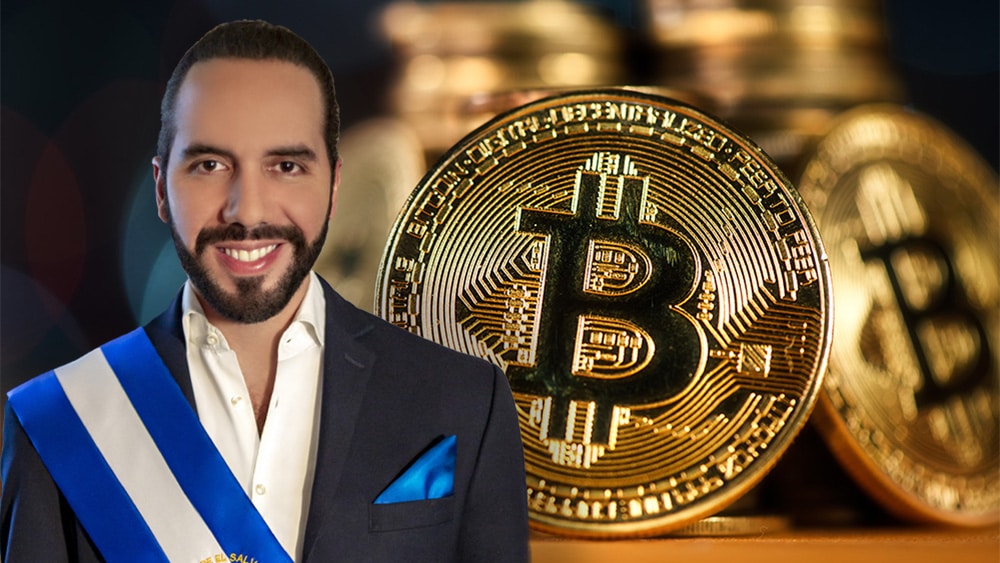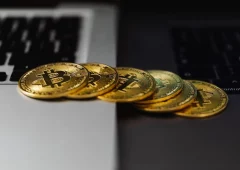Bitcoin Adoption in El Salvador: IMF and Government Reach Agreement Milestone
14.08.2024 20:00 1 min. read Alexander Stefanov
The International Monetary Fund (IMF) and El Salvador are making headway towards a deal to address concerns linked to Bitcoin’s use as legal tender.
These discussions aim to bolster public finances and ensure financial stability, potentially resulting in an IMF-backed program.
The focus of the negotiations between the IMF and Salvadoran officials is on strategies to improve the country’s fiscal health.
The IMF has reported that progress is being made on a program designed to enhance public finances, boost bank reserves, increase transparency, and address Bitcoin-related risks.
Key areas of the discussions include increasing the primary fiscal balance by 3.5% of GDP over the next three years, strengthening bank reserves to maintain financial stability, and improving governance and transparency concerning Bitcoin use.
The IMF has noted that while Bitcoin-related risks have not yet emerged, it still has concerns about Bitcoin’s role as legal tender. The organization stresses the importance of continued efforts to enhance transparency and mitigate potential risks.
-
1
Bitcoin ETF Inflows Hit $2.2B as Market Calms After Ceasefire
25.06.2025 17:00 1 min. read -
2
Bitcoin ETF Inflows Explode Past $3.9B as BlackRock’s IBIT Leads the Charge
26.06.2025 18:08 1 min. read -
3
Bitcoin Surpasses Alphabet (Google) to Become 6th Most Valuable Asset Globally
27.06.2025 14:39 2 min. read -
4
Is Bitcoin a Missed Opportunity? This Billionaire Begins to Wonder
27.06.2025 12:00 1 min. read -
5
Bitcoin Price Prediction for the End of 2025 From Standard Chartered
02.07.2025 18:24 1 min. read
Robert Kiyosaki Reacts to Bitcoin’s Surge Past $120K: “I’m Buying One More”
Famed author of Rich Dad Poor Dad, Robert Kiyosaki, has once again thrown his support behind Bitcoin following its recent surge above $120,000, calling it a win for those who already hold the asset—and a wake-up call for those who don’t.
Bitcoin Blasts Past $121,000 [Live blog schema]
Bitcoin has officially broken through the $121,000 level, rising 2.84% in the past 24 hours to hit $121,400, according to CoinMarketCap data.
Bitcoin Blasts Past $121,000 as Institutions Fuel Rally—Will Altcoins Follow?
Bitcoin has officially broken through the $121,000 level, rising 2.84% in the past 24 hours to hit $121,400, according to CoinMarketCap data.
Bitcoin Reaches $119,000 Milestone as Corporate Demand and ETF Inflows Rise
Bitcoin soared to a new all-time high above $119,000 on July 13, extending its bullish momentum on the back of institutional accumulation, shrinking exchange reserves, and technical breakout patterns.
-
1
Bitcoin ETF Inflows Hit $2.2B as Market Calms After Ceasefire
25.06.2025 17:00 1 min. read -
2
Bitcoin ETF Inflows Explode Past $3.9B as BlackRock’s IBIT Leads the Charge
26.06.2025 18:08 1 min. read -
3
Bitcoin Surpasses Alphabet (Google) to Become 6th Most Valuable Asset Globally
27.06.2025 14:39 2 min. read -
4
Is Bitcoin a Missed Opportunity? This Billionaire Begins to Wonder
27.06.2025 12:00 1 min. read -
5
Bitcoin Price Prediction for the End of 2025 From Standard Chartered
02.07.2025 18:24 1 min. read


